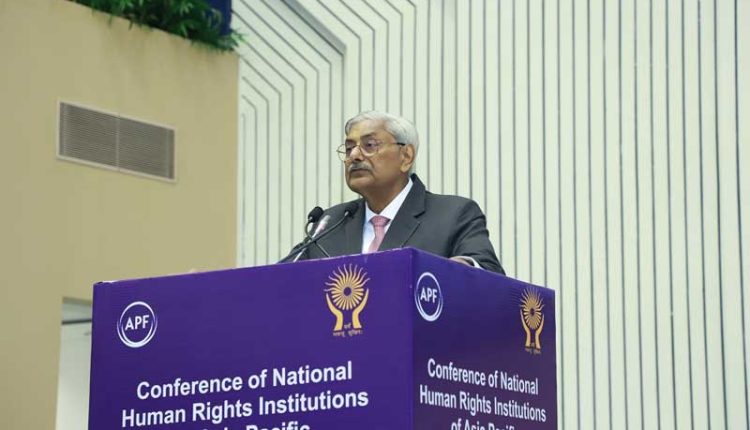Two-day conference NHRIs of Asia Pacific concluded by adopting the ‘Delhi Declaration’ on human rights
- NHRC Chairperson Justice Arun Mishra build the consensus on Delhi Declaration, which was hailed by all NHRIs and other delegates
- The Conference reaffirmed the significance of Universal Declaration of Human Rights (UDHR), Paris Principle for NHRIs and UN Declaration on Human Rights Defenders (HRDs)
- Collective action emphasized on harmonizing climate change and human rights
- The discussions unfolded the promise for a better tomorrow for which the NHRIs have to work relentlessly to pursue the set goals: Justice Shri Arun Mishra, NHRC, India Chairperson
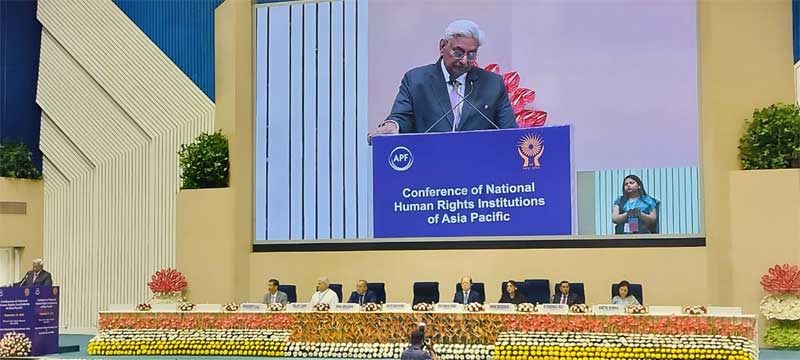
New Delhi (Kalinga Voice): The two-day conference of the National Human Rights Institutions (NHRIs) of Asia Pacific concluded by adopting the ‘Delhi Declaration’. NHRC India Chairperson Justice Arun Mishra worked with his counterparts of Asia Pacific countries and build a consensus on Delhi Declaration, which was appreciated and acknowledged by all the delegates. This declaration marked the celebration of significant milestones, including the 75th anniversary of the Universal Declaration of Human Rights (UDHR), the 30th anniversary of the Paris Principles pertaining to the status of NHRIs, and the 25th anniversary of the UN Declaration on Human Rights Defenders. The declaration reaffirmed the enduring importance of these international norms in the promotion and safeguarding of human rights. It emphasized their value as guiding principles for the global human rights discourse and their role in establishing NHRIs worldwide to engage with diverse stakeholders, including governments, in the formulation of human rights-centered policies and legislation.
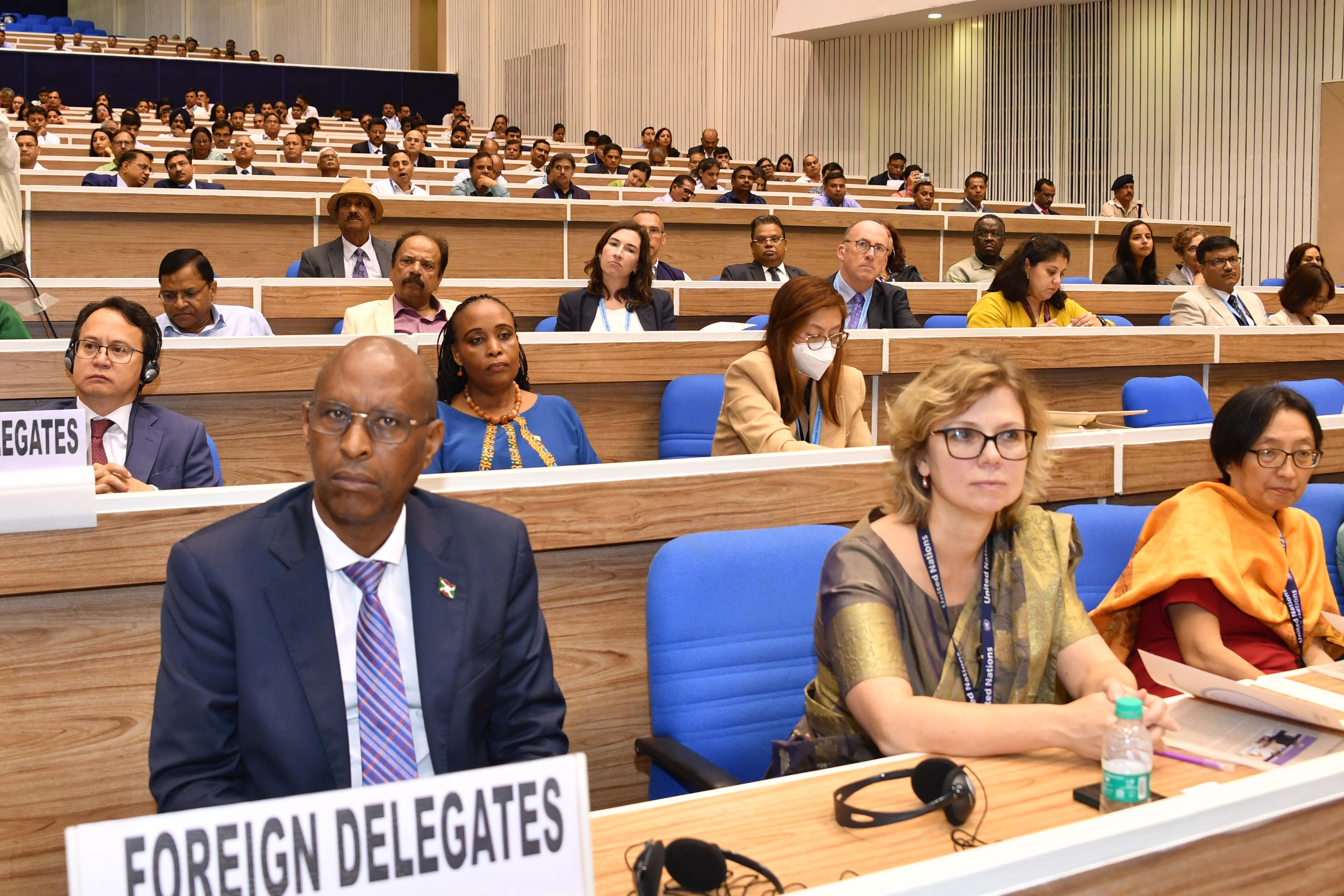
The Declaration noted the emerging human rights issues and challenges, especially in the area of information and communication technologies, artificial intelligence, business, healthcare, climate change, natural and human-made disasters and offences taking place across borders. It emphasized the need for bolstering the human rights ecosystem; and called for reinvigoration of the UDHR as a global standard to address the newer challenges emerging out of the global business practices and climate change on human rights. The Asia Pacific NHRIs reaffirmed their commitment to advise the governments and communities in mitigating, adapting and responding to the human rights impacts of climate change.
The two-day conference commenced with the inauguration by the President of India, Smt. Droupadi Murmu on 20th September, 2023. In her address, the President underscored the deep-rooted civilizational values shared by India and other nations within the Asia Pacific region, emphasizing their historical role as custodians of human rights. She further highlighted the potential for these nations to collaborate in forming a consensus on international matters pertaining to human rights.
The President said that India has a long historical experience of practicing and cherishing democratic values and individual rights. The concept of republic may appear modern but nearly 2,800 years ago, India had the world’s first people’s representative government in Vaishali. Similarly, much before the western world got acquainted with the concept of equal human rights through Magna Carta, a revered sage and philosopher from southern India, Basavanna, promoted the concept of individual liberty and equality. He created an assembly of people which was called “Anubhava Mantapa” where people irrespective of their class and gender would participate and determine their collective fate.
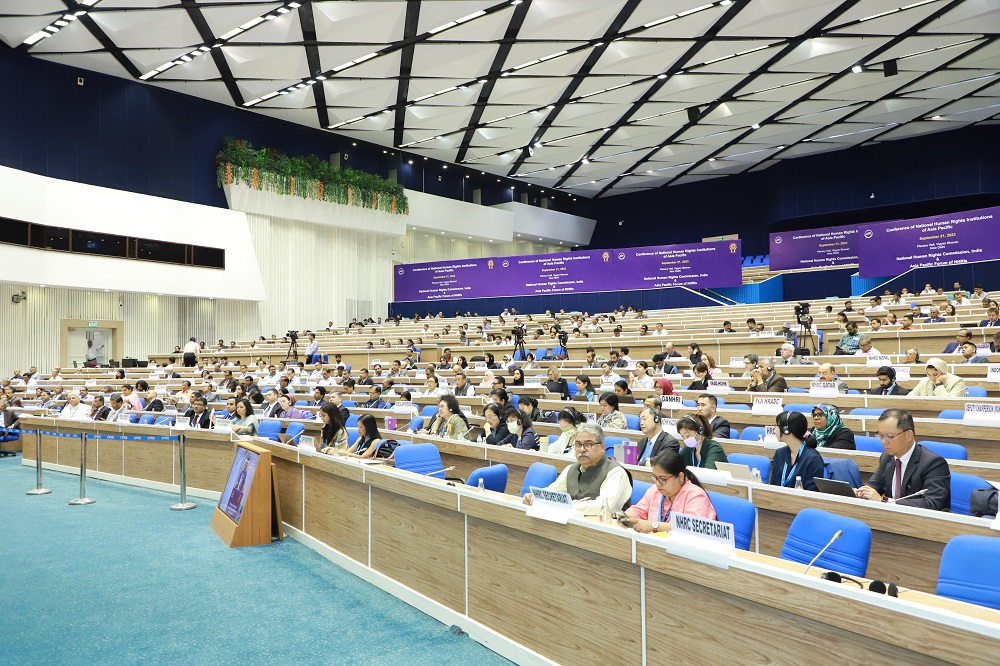
During the Opening Ceremony, in his key note address, the NHRC, India, Chairperson Justice Arun Mishra said that the NHRIs of the Asia Pacific have to see how best they can strengthen global efforts by moving from commitment to action. We need a joint strategy for the emerging challenges to Human Rights protection in areas of climate change, child trafficking, Child Sexual Abuse Material (CSAM) and other crimes in cyberspace as well as the latest developments in Artificial Intelligence.
He said that we have to protect the human rights of victims of terrorism, drug abuse and war and their impact on the lives, livelihood, world economy and peaceful co-existence. The time has come to remind ourselves of non-violence preached by ‘Lord Buddha’ and ‘Bhagwan Mahaveer’. Referring to the work and mandate of the NHRIs, Justice Mishra said that we all are working for need-based distributive justice so that no one is deprived of Rights due to socio-economic conditions and personal beliefs. The concentration of wealth in a few hands globally is causing a brooding sense of injustice. There is an acute need for the inclusion of marginalised and other disadvantaged segments of society in the gains of globalization.
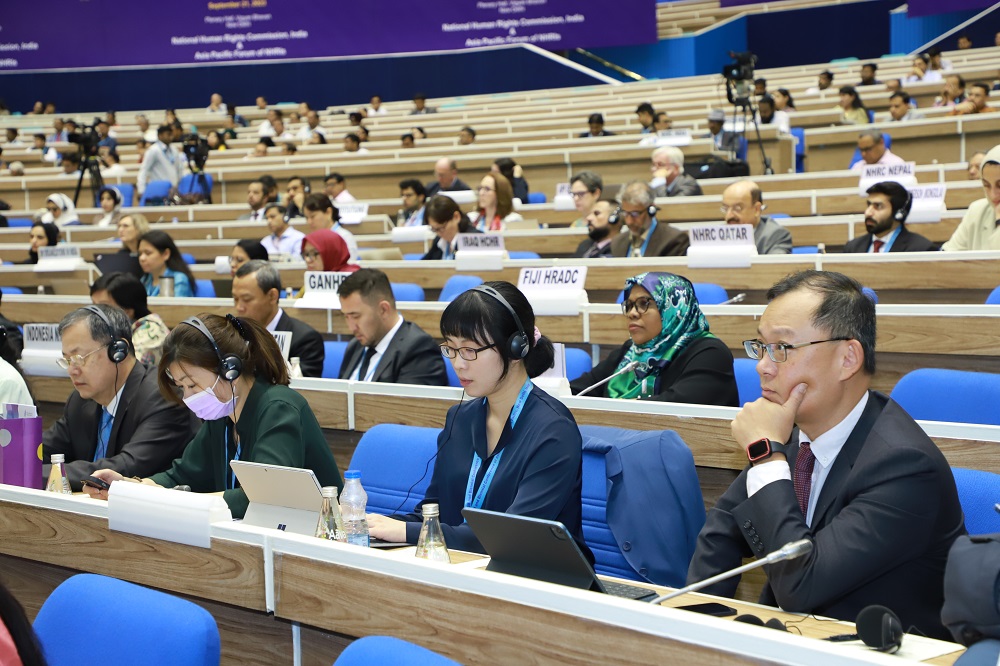
He said that we must ensure that workers involved in various economic activities are provided humane working conditions. Unfair trade practices, too, violate human rights. Pricing must co-relate with the cost of production to stop unrealistic price production from the consumers. He also said that business houses must be responsible for processing waste and removing debris from their premises. The hazardous debris post Bhopal gas tragedy in 1984 still awaits removal. The delay is causing contamination of ground water and soil. Stringent safety measures and liability are necessary to prevent the recurrence of such incidents.
Justice Mishra said that the States, while respecting the intellectual property right, must adopt a right-based approach in essential health services in public interest. The intervention of regulatory bodies, particularly in pricing life-saving drugs, medicines, vaccines and medical devices, is necessary for protecting the right to health, which is part of the right to life. He also strongly pitched in for ensuring gender justice for women and LGBTQI community without which he said, the right to equality cannot be achieved. Similarly, the right to equality has to be enforced vis-a-vis the specially-abled. The concept of providing “reasonable opportunity” in their case should be interpreted liberally. He said that the NHRC, India recently urged the insurance providers to provide coverage to them without discrimination.
In the Opening Ceremony, which was attended by more than 1,300 delegates, Chairperson of Asia Pacific Forum of NHRIS Mr. Doo-Hwan Song and Ms. Amina Bouayach, Secretary, Global Alliance of Human Rights Intuitions also spoke.They complimented the NHRC India for organizing this conference on such a scale.
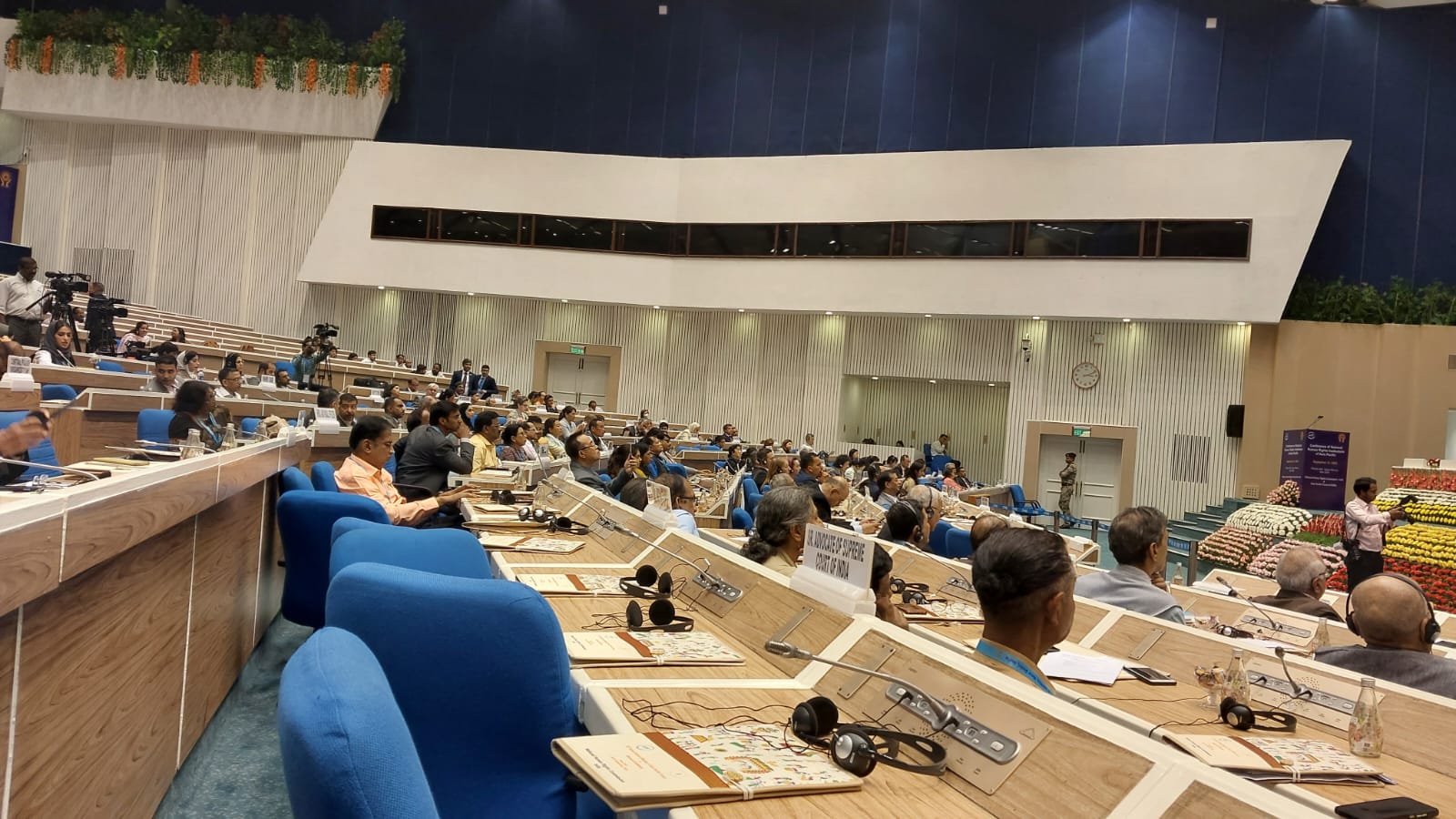
In his welcome address, Secretary General, NHRC Bharat Lal also gave the overview of the conference and the three sessions – a.) 30 years of promoting and protecting human rights across Asia and the Pacific; b.) Advancing the Universal Declaration of Human Rights (UDHR) and its promise of freedom, equality and justice for all; and c.) The role of NHRIs in responding to and mitigating the impact of climate change on human rights.
He said that India, a great civilization and diverse country of 1.43 billion people, has deep rooted ethos of democracy. Idea of equality, liberty, justice and fraternity is ingrained in all of us. Empathy and compassion to all forms of life, is a way of life.In his address, he recalled that 75 years back when Universal Declaration of Human Rights was being drafted, it was Hansa Mehta from India, who introduced ‘gender equality’. Similarly, Laxmi Menon was another Indian, who introduced ‘non-discrimination’ into the declaration. He said that this kind of thought process reflected the true Indian ethos.
After the inaugural function, the common issues related Asia Pacific Forum at the AGM were discussed in detail and consensus was built on all issues.

On September 21st, the biennial conference of the NHRIs of Asia Pacific had discussions in three thematic sessions on the 30 years of National Human Rights Institutions and Paris Principles, 75 Anniversary of UDHR, with a sub-theme on the environment and climate change.Initiating the discussions in the 1st session on the 30 years of National Human Rights Institutions and Paris Principles, the NHRC, India Chairperson, Justice Shri Arun Mishra in his keynote address, underscored the importance of prioritizing technological transfer at affordable rates, capacity building, and the dissemination of strategic insights on climate change. He stressed that these measures are essential to ensure that developing nations adhere to uniform emission standards.
He also provided an in-depth examination of the NHRC’s operations and diverse interventions over the course of its 30-year existence, all in alignment with the provisions of the Universal Declaration of Human Rights (UDHR) and the Paris Principles.
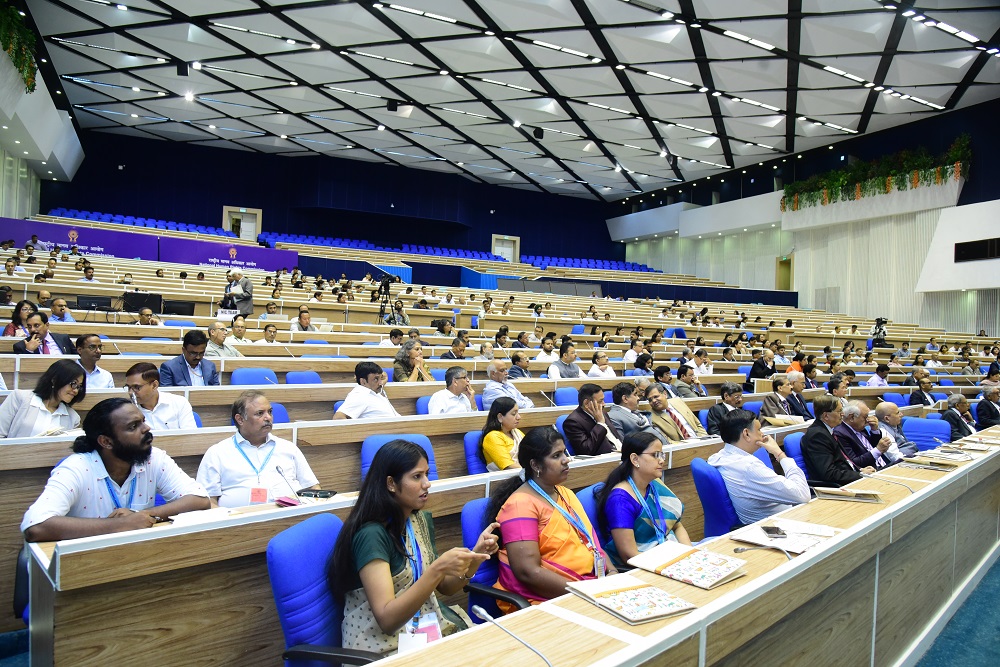
Initiating discussions in the 2nd session on the 75 Anniversary of UDHR as a panellist, the NHRC Member Dr. D. M. Mulay said that the UDHR rose like a phoenix for the cause of human rights and called for joint strategies to address the new challenges. He said that achieving the first six goals of Sustainable Development Goals (SDGs) will ensure the basic requirements for protecting human life and dignity.
In the 3rd session on the environment and climate change, the NHRC Member, Mr. Rajiv Jain, as a panellist said that the right to life encompasses all the rights and hence needs to be accorded priority as it is affected by climate change. The NHRIs have to reinforce their role as a bridge between civil society organizations and policy makers besides educating the public on the issues of climate change. Noted environmentalist and Director General, Centre for Science and Environment, Ms. Sunita Narain, panelist, emphasized that the climate agreement will not be complete without climate justice for the developing nations.
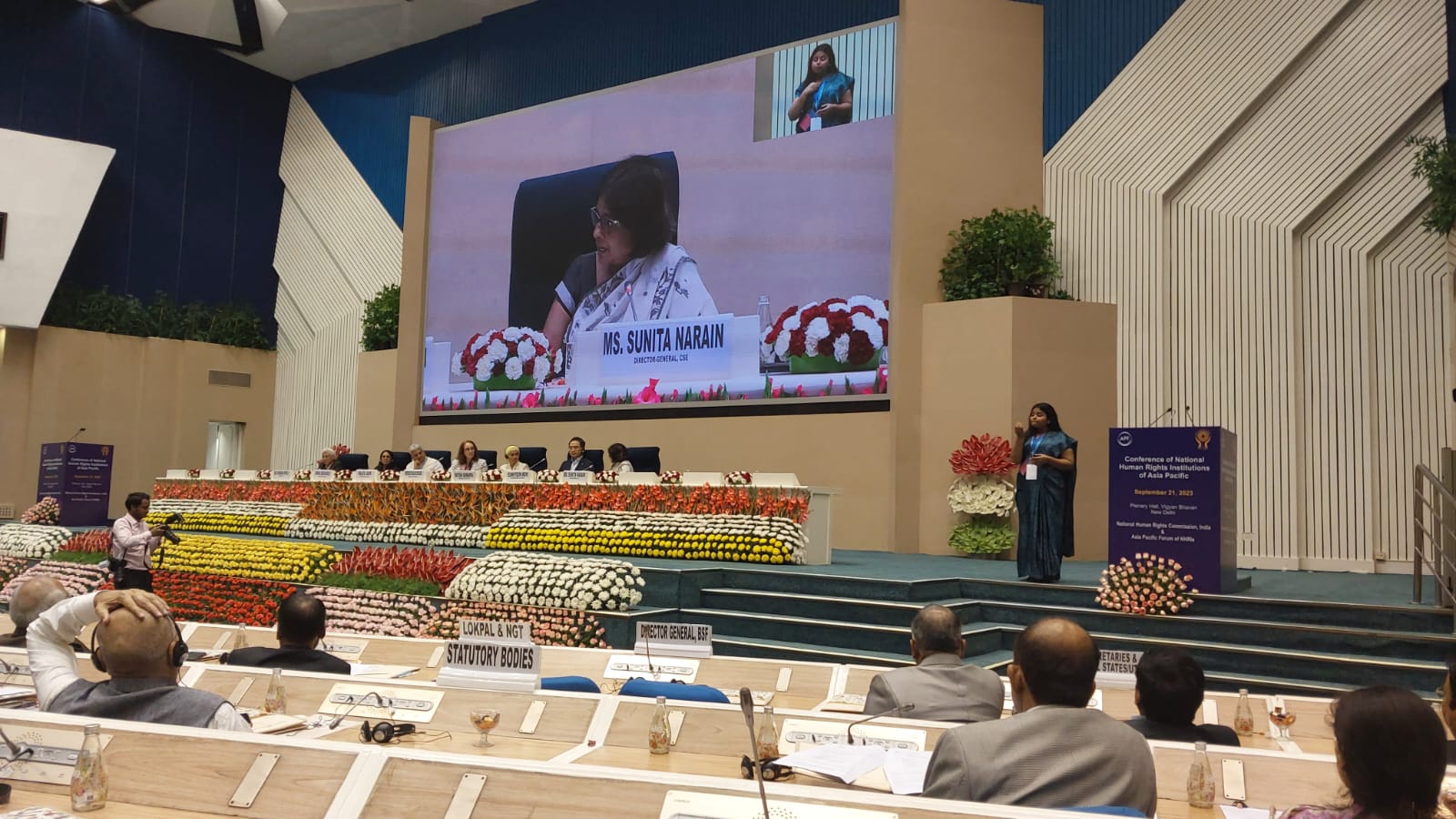
Addressing the valedictory session, the NHRC Chairperson, Mr. Justice Arun Mishra satisfaction over the deliberations leading to a consensus on the ‘Delhi Declaration’ on human rights, which is a milestone document. He said that we feel better equipped to defend human rights through our joint efforts and noble ideas exchanged at the conference including a dialogue between the APF and the Civil society organizations.
He said that the NHRIs are expanding the reach and ambit of human rights in the wake of ever-growing challenges and newer forms of technological era. Problems due to globalization, environment degradation and cyberspacepose a danger.The discussions unfolded the promise for a better tomorrow for which the NHRIs have to work relentlessly to pursue the set goals.
During various sessions, other prominent speakers such as APF Chairman, Mr. Doo-Hwan Song, Ms. Amina Bouayach, Secretary, Global Alliance of Human Rights Intuitions, Mr. Vladlen Stefanov, Chief, National Institutions, Regional Mechanisms and Civil Society Section, UN Office of the High Commissioner for Human Rights, Mr. Volker Turk, United Nations High Commission for Human Rights, Mr. Rory Mungoven, Chief Asia Pacific Section, Office of the High Commissioner for Human Rights, Dr. Ian Fry, UN Special Rapporteurs on the Promotion and Protection of Human Rights in the context of climate change besides the Chairpersons and Commissioners of the human rights institutions of Fiji, Jordon, Mongolia, Australia, Morocco, Philippines also spoke.
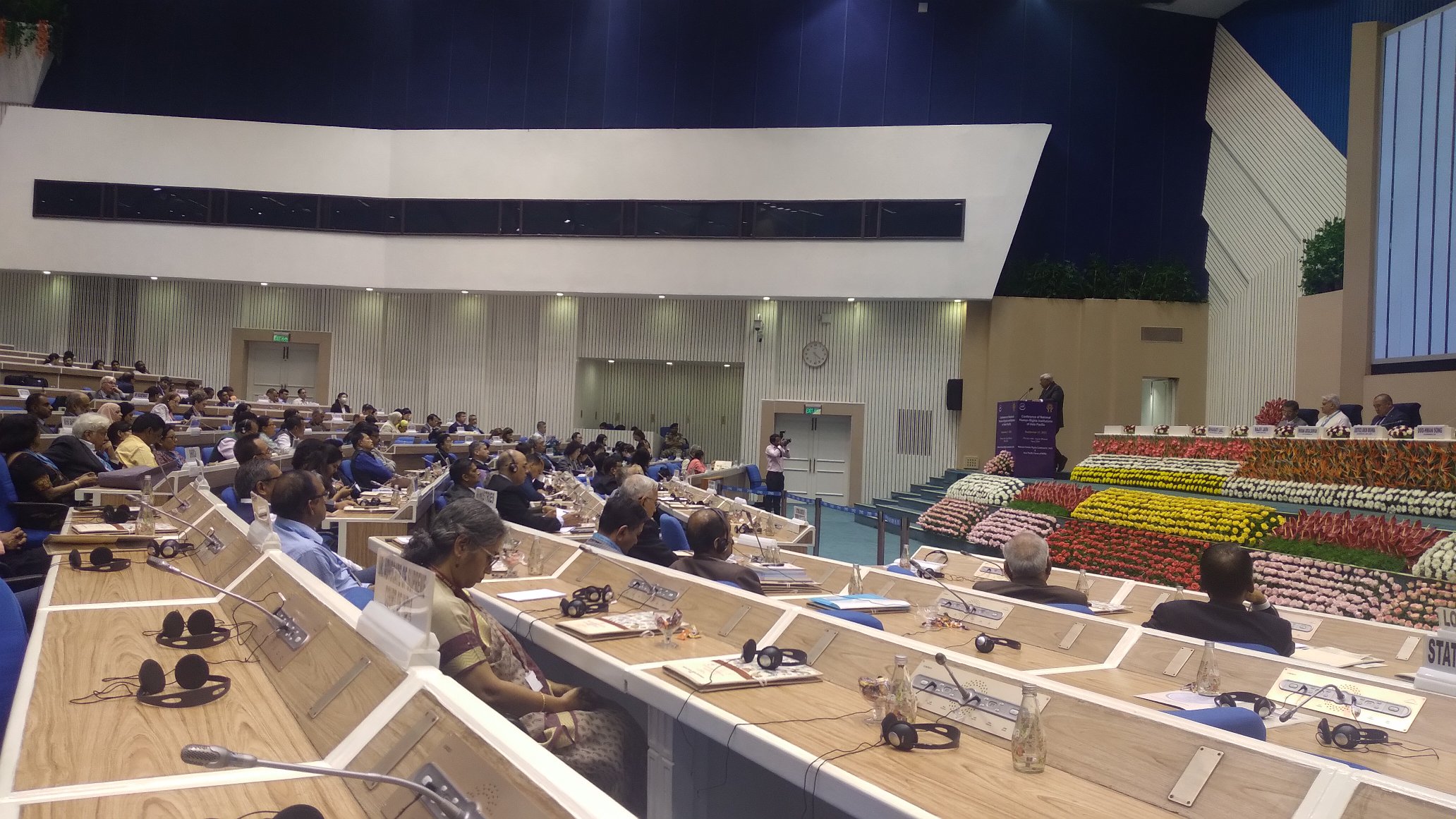
The prominent civil society representatives and human rights defenders, who spoke in the conference, included Mr. Suhas Chakma, Director, Rights & Risks Analysis Group, India, Dr.Sakuntala Kadirgamar Executive Director, Law and Society Trust, Sri Lanka, Mr. Syed Akbaruddin, former diplomat and Dean at the Kautilya School of Public Policy, Hyderabad, India, Dr. Kundan Aryal Chairperson, Informal Sector Service Centre, Nepal. More than 20 speakers spoke at the Conference which was attended by international delegates from NHRIs of Asia Pacific countries, officials of Asia Pacific Forum and GANHRIs and Chairpersons of SHRCs, Member of legal and judicial fraternity, senior government officials from Govt of India as well as states, representatives of NGOs, civil society, human rights defenders, academicians, students, researchers, etc.

